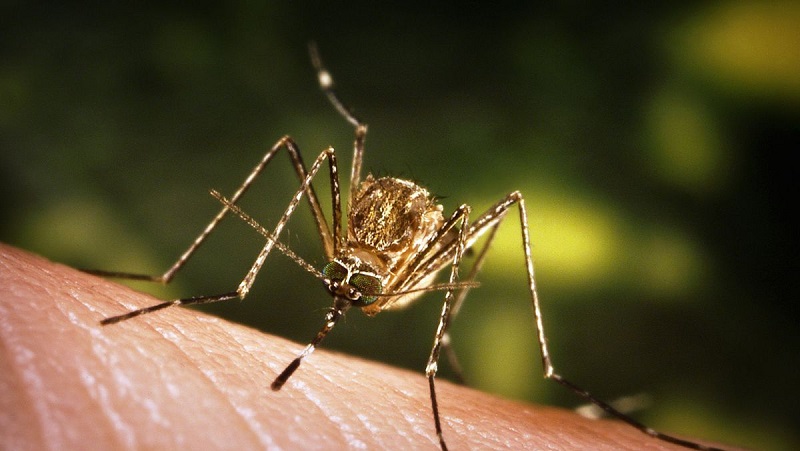Indiana
Health experts warn against mosquito-borne viruses and report the detection of West Nile Virus

Indianapolis, Indiana – As a result of this year’s first mosquito detection of the West Nile virus (WNV), state health authorities are advising Hoosiers to take precautions against mosquito bites. WNV was detected in a mosquito sample taken in Clinton County. This year, no human cases of the WNV infection have been found. The Indiana Department of Health (IDOH) anticipates that WNV activity will nonetheless persist throughout the state during the duration of mosquito season, which lasts through the first hard frost. “With the warm weather already here, more people are going outside. In order to ensure that Indiana residents can safely engage in outdoor activities, the following procedures should be taken: Dr. Lindsay Weaver, the state’s commissioner of health, remarked.
Residents should take the following actions to get rid of potential breeding grounds because even a tiny container like a bottle cap can become a mosquito breeding ground:
• Discard old tires, tin cans, ceramic pots, or other containers that can hold water;
• Each week, empty and scrub items that hold water such as birdbaths, toys, pools, and flowerpot saucers;
• Repair failed septic systems;
• Drill holes in the bottom of recycling containers left outdoors;
• Keep grass cut short and shrubbery trimmed;
• Clean clogged roof gutters, particularly if leaves tend to plug up the drains;
• Frequently replace the water in pet bowls;
• Aerate ornamental pools, or stock them with predatory fish.
State health officials recommend the following personal protective measures:
• Avoid being outdoors when mosquitoes are active (especially during evening hours, from dusk to dawn, and in the early morning);
• Apply an EPA-registered insect repellent containing DEET, picaridin, IR3535, oil of lemon eucalyptus, or para-menthane-diol to clothes and exposed skin;
• Cover exposed skin by wearing long sleeves and long pants in places where mosquitoes are especially active, such as wooded and shady areas;
• Install or repair screens on windows and doors to keep mosquitoes out of the home. About 80 percent of people infected with WNV virus will not develop any symptoms. About 20 percent of people infected with WNV will develop an illness accompanied by fever, headache, body aches, joint pains, vomiting, diarrhea or rash. Less than 1 percent of people infected with WNV will develop severe illness affecting the nervous system, which can include inflammation in the brain or in the membranes that cover the brain and spinal cord. About 10 percent of severe WNV disease cases are fatal. People older than 60 years and those receiving immunosuppressive medications or treatments are at greatest risk of severe WNV disease.
People should get in touch with their doctor if they suspect they have the West Nile virus.
In order to help Hoosiers better understand their risk for mosquito-borne illness based on virus activity occurring across the state, IDOH has developed a mosquito surveillance dashboard.
-

 Local News2 weeks ago
Local News2 weeks agoCouncil of Bloomington overrides mayor’s veto of resolution calling for a ceasefire in Gaza
-

 Local News2 weeks ago
Local News2 weeks agoAttorney General Rokita offers her opinion on the use of pronouns at work
-

 Local News2 weeks ago
Local News2 weeks agoThe positions of the Republican gubernatorial candidates regarding taxes
-

 Local News1 week ago
Local News1 week ago$50,000 Truck stop sells Powerball tickets that are about to expire
-

 Indiana1 week ago
Indiana1 week agoAnderson man sentenced to 65 years for wife murder
-

 Indiana2 weeks ago
Indiana2 weeks agoWoman from Aurora detained for assaulting a child
-

 Local News2 weeks ago
Local News2 weeks agoBehold the spectacle that is Good Gravy!
-

 Local News1 week ago
Local News1 week ago$75 million “luxury urban” townhomes and condos with rooftop terraces are set to begin construction






Leave a Reply